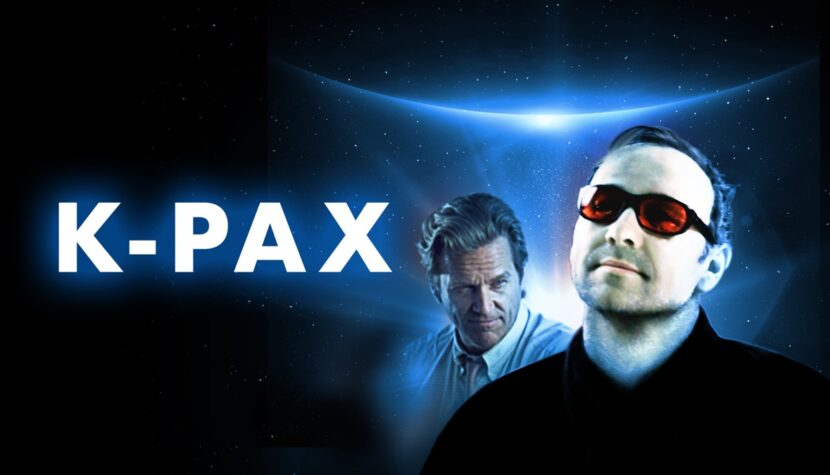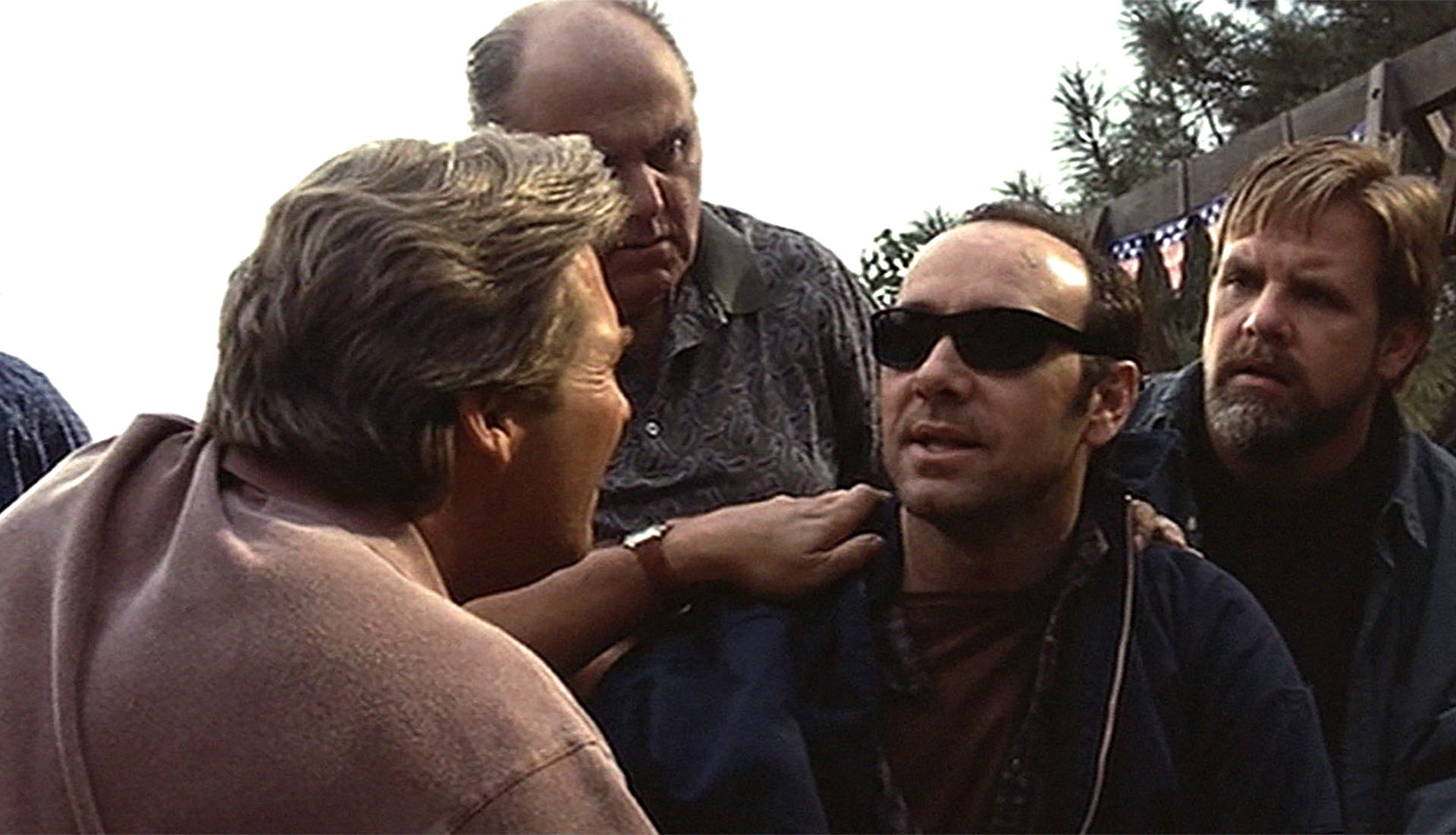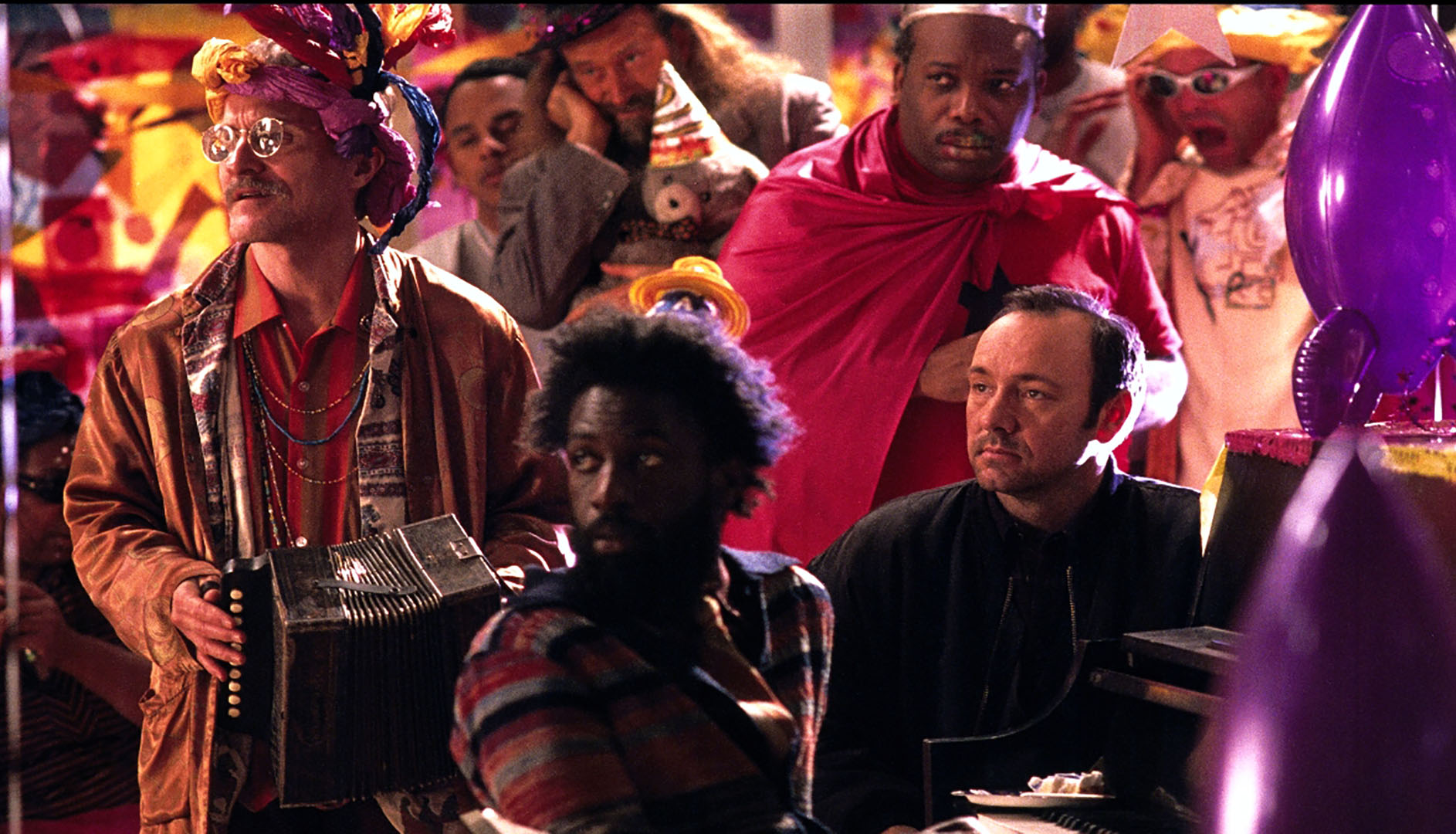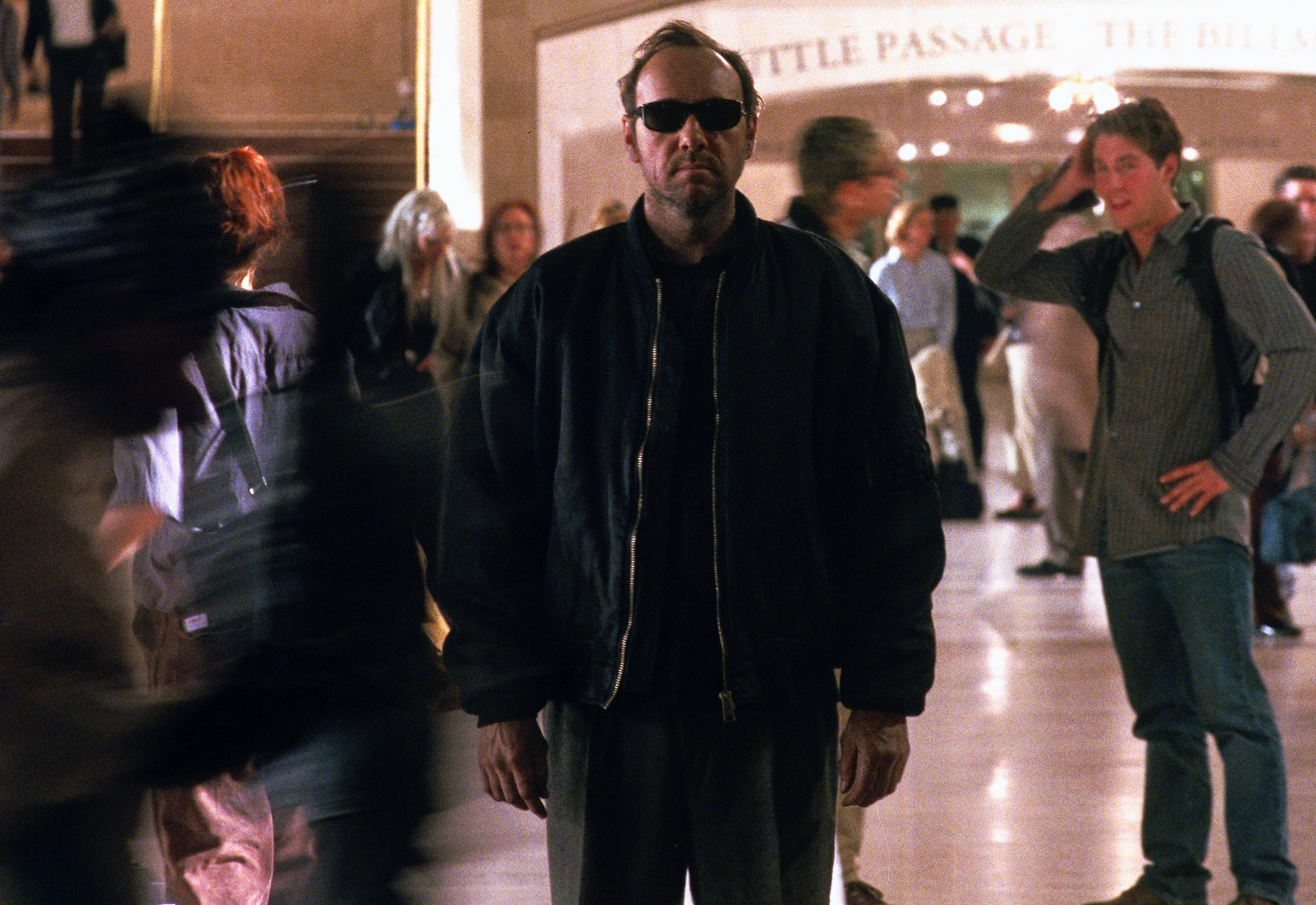K-PAX. Science fiction or a mental condition?

It is not difficult to predict the reaction of the average person if you were to declare, ‘I, coming from the planet K-Pax (or some other planet).’ At best, they would probably tap their forehead and suggest the nearest psychiatric ward. The same thing happens to Prot (Kevin Spacey). Stopped by a police patrol at the station, he is immediately taken to a clinic for the mentally ill with suspected drug-induced hallucinations. He claims to have come from a distant planet and refuses to take off his dark glasses, as Earth is too bright for him.
Prot, however, has no intention of resisting. He accepts everything that happens to him with mild calmness. In this way, he comes under the care of a psychiatrist (Jeff Bridges), a routine specialist who, in the clinical parade of cases, has forgotten that he has a family to whom he owes attention. Over time, it turns out that the mysterious Prot has a beneficial influence on the patients in the facility. Thanks to him, they begin to open up, and interestingly, they start to believe that the chance for recovery is a journey to the distant planet K-Pax. Each of them hopes to be the chosen person to fly with Prot. However, the doctor has his own opinion: he believes that a traumatic experience from the past has left such a mark on his patient that he has decided to get rid of his identity. At any cost, he decides to find out what it was.

K-Pax develops very well, and the beginning promises an interesting story. Unfortunately, it gets worse later on. First and foremost, the film lacks logic. It seems that the director wanted to engage the viewer in the game and leave the choice of who Prot really was. However, he did it in such a clumsy way that instead of curiosity, it arouses boredom. Right from the beginning, we are presented with black-and-white evidence of Prot’s extraterrestrial origin: he sees in ultraviolet, can describe in detail an unknown galaxy, and has incredible knowledge of physics and astronomy, which is only available to specialists. Then, the screenwriter bends over backward to convince us that we are dealing with a rural simpleton making a living as a slaughterhouse stunner (the one who stuns cows in the slaughterhouse with a blow to the head), and his great knowledge is justified by the remark of a policeman, “he was an incredibly well-read guy.” To say that this is a stretch is an understatement. What’s worse, the film is supposed to convey a message summarized in one sentence, “I can believe I can be Robert Turner if you believe I can come from the planet K-Pax,” and unfortunately, the film did not avoid being overly sentimental, clichéd, and typically Hollywood-like. As a result, a secondary and inconsistent fairy tale with a moral was created, of which there have been thousands on the screen, where the lost sheep returns home, loneliness ends, what is most important is seen and appreciated, and the great song of love and forgiveness roars with all its might.

As for the acting – Spacey, until halfway through K-Pax, is brilliant. Calmly, with absolute certainty of a being(?) who has his reasons, who knows by heart the path he must take, and looks at the human species with curiosity, understanding, and a kind of friendly indulgence. He looks at the psychiatrist with sympathy, knowing full well that, regardless of what he says, he will not be understood as he should; but fundamentally, it doesn’t bother him at all. From the moment the hypnosis treatment motif is introduced, he must reluctantly get rid of his “extraterrestrial” distinctiveness and fall into heart-grabbing, but unfortunately, theatricality. The script, with all its predictability, clearly constrained Spacey’s possibilities. He could have made a true gem out of this role, but unfortunately, he wasn’t given the chance because, frankly, what he had to deal with was too foolish for a true acting performance. Bridges, on the other hand, did not even achieve what Spacey did. His character is as flat as a pancake and as salty as the Dead Sea, and looking at him, it’s hard to forget that this has already happened: work over family, long-standing conflict with a long-unseen son (incidentally, it is not known for what reason: it seems that the father simply forgot that he had a son), and finally, a great conversion. Excessive sweetness makes the head spin, and again, there is regret that in real life, it’s not that simple.

The depiction of K-Pax as an oasis of happiness at a higher level of civilization is strangely inconsistent. There is no family in our understanding of the word, no obligations or relationships. At the beginning of the film, they convince us that such an arrangement is good, then they try to praise the family by creating an image of a man who suffered because he lost it and therefore creates a utopia of a world without obligations… yet another element that deprives the film of logic and coherence. You can watch it with a wink, treating it as pure entertainment. It rather bored me.

